
Today is not the day you want to panic about the potential of your home selling because a home appraisal will point out the turn downs of why your property values at a low worth. You may wonder how to get past it; it shouldn’t be long, especially because it can all be settled.
If you are a homeowner looking to sell, you can begin setting up for a change when you know your home’s appraisal value, giving your property a lift to improve its value if needed.
Nonetheless, let us look at home appraisal factors that can affect the value of your home.
What Is in an Appraisal Report?

An appraisal report is a detailed document created by a professional home appraiser after they have completed a thorough inspection of your property. The report typically includes information about the appraised property, such as the address, a description of the property’s features and condition, and the appraisal date. It also includes the appraiser’s professional opinion of the property’s value.
The appraiser will then compare your home to similar properties in the local market that have recently sold to determine its fair market value. This will be documented in the Uniform Residential Appraisal Report or the appraisal report, which provides a detailed breakdown of the home’s appraisal value.
By understanding the appraisal process and the factors that affect your home’s value, you can position your home to fetch a higher appraisal value and potentially more money in a real estate transaction.
Working with a real estate agent or appraiser who deeply understands the local real estate market can help ensure you get a fair market value for your home.
Major Renovations Influences Appraisal Value

Major renovations can have a significant impact on the appraisal value of a home. When a home appraiser evaluates a property, they consider many factors that affect the value of your home, such as its size, age, condition, location, and any recent renovations or updates.
The appraisal value of a home is the estimated fair market value of the property. The appraised value is determined by a licensed appraiser who follows a standardized appraisal process and uses a Uniform Residential Appraisal Report to document their findings.
The local real estate market also influences the appraisal value of your home. The appraiser will consider comparable sales in the area to determine the fair market value of your property. The comparative market analysis involves finding similar homes in the exact location that have recently sold to determine a reasonable price range for your home.
The square footage of your home, the number of bedrooms and bathrooms, and the amount of livable space are other important factors that affect your home’s appraisal value. Factors like garage space, storage space, and modern materials can also increase your home’s appraisal value.
In summary, major renovations can increase your home’s appraisal value, but weighing the potential increase against the renovation cost is important. A licensed appraiser will consider many factors that affect the value of your home when completing the appraisal process.
What Factors Negatively Impact Appraised Value?
Home location

One of the most important factors to consider when appraising your home’s value is its location. Your home’s location can significantly impact its appraisal value, whether in a bustling city or a peaceful suburb.
A home in a desirable neighborhood with good schools, access to public transportation, and local amenities will typically appraise for a higher value than a home in a less desirable location.
In addition to neighborhood factors, the specific location of your home within the neighborhood can also affect its appraisal value. For example, a house on a busy street or near a noisy highway may appraise for less than a similar home on a quiet, tree-lined street.
It’s important to remember that the local real estate market and current market conditions will also play a role in your home’s appraisal value. An experienced appraiser will consider all these factors when assessing your home’s fair market value.
Lack of curb appeal

Curb appeal is an important factor that can affect the value of a home during the appraisal process. Curb appeal refers to the attractiveness of the home’s exterior, including the landscaping, the condition of the home’s exterior, and the overall appearance of the property when viewed from the street.
A home with good curb appeal will typically be viewed more favorably by an appraiser, potentially resulting in a higher appraised value.
On the other hand, a home lacking curb appeal may negatively impact the appraised value. A poorly maintained exterior, overgrown landscaping, or cluttered front yard may indicate to an appraiser that the home has not been well taken care of and may require additional maintenance and repairs. This can result in a lower appraised value for the home.
Appeal and Appearance of Your Home
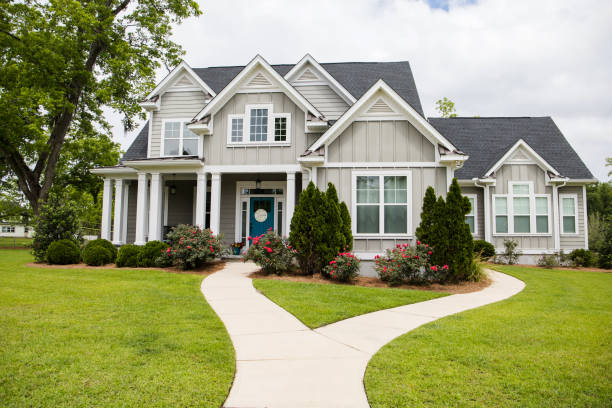
While location factors such as neighborhood amenities and proximity to busy streets play a significant role in determining your home’s value, the appearance and appeal of your home are equally important.
An appraiser will also consider your home’s overall condition, including its curb appeal. An unkempt lawn, a messy house, and outdated systems can negatively affect your home’s value. In contrast, a well-maintained home with modern materials and a finished basement with ample storage space will increase its value.
The appraisal process involves a detailed inspection of your home’s exterior and interior, and the appraiser will note any improvements and repairs. They’ll also compare your home to similar properties in the local real estate market that have recently sold.
So, if you plan to sell your home or get an appraisal, it’s important to ensure it looks its best inside and out.
Dated or undesirable finishes
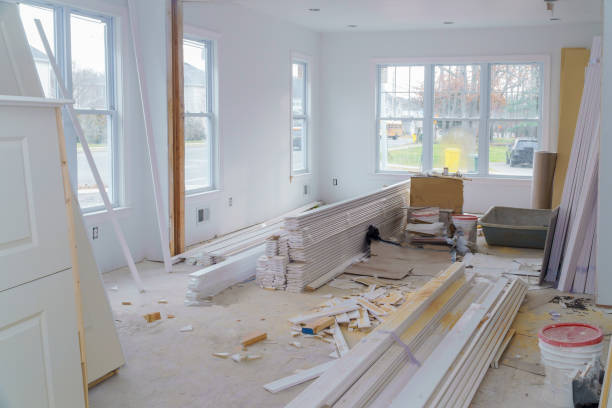
When potential buyers view your home, they want to see modern and up-to-date finishes. If your finishes are not desirable, it may result in lower offers or a longer time on the market. These can include outdated or unappealing flooring, countertops, cabinets, and fixtures.
During the appraisal process, the home appraiser will take note of these finishes and factor them into their appraisal report. This report will provide value for your home based on various factors, including the condition of the finishes.
To increase the value of your home and appeal to potential buyers, consider updating your finishes with modern materials and designs. This can include swapping out the old carpet for hardwood or tile flooring, replacing outdated countertops with quartz or granite, and updating fixtures such as faucets and lighting.
It’s important to remember that updates should be made strategically, as you want to ensure you are not over-improving for the local market.
Outdated Systems, Appliances and Interiors
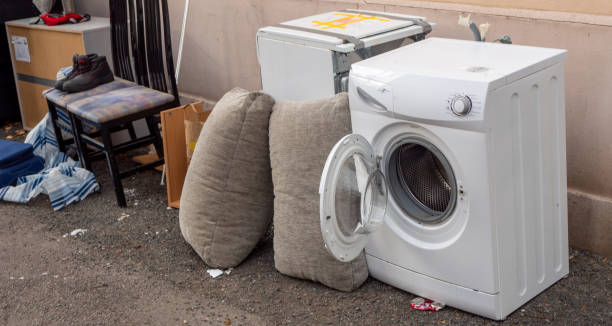
The value of your home can be affected by various factors, including the condition of its systems, appliances, and interiors. When you undergo a home appraisal, the appraiser will consider all these factors to determine the fair market value of your property.
The appraisal process involves several steps, including an exterior building sketch, measurements of the livable space and storage areas, and evaluating the number of bedrooms and bathrooms. The appraiser will also consider other properties in your neighborhood that have recently sold to understand the local real estate market.
Ultimately, the goal of the appraisal process is to determine the fair market value of your property. This value is typically based on a comparative market analysis of similar properties in your area, recent sales prices, and current market conditions.
A higher appraisal value can mean more money when selling your property if you’re a home seller. It’s important to remember that the appraisal process is just one part of a real estate transaction.
Poor quality construction
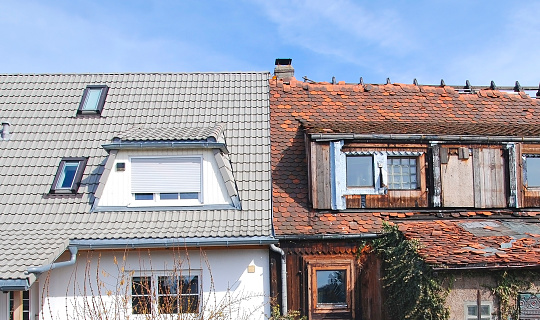
Poor quality construction can negatively affect the appraisal value of your home. It is one of the factors that can significantly decrease the value of your property. When appraisers evaluate your home, they consider the construction materials, workmanship, and structural integrity.
If your home was built with low-quality materials or shoddy workmanship, it may not hold up well over time and could require costly repairs or renovations.
A poorly constructed home may also lack modern materials, finishes, and amenities in demand in the current real estate market, which can negatively affect the home’s value. Additionally, a home with outdated systems, such as an old HVAC or electrical system, may not function efficiently, making it less attractive to potential buyers.
A home may deter potential buyers with poor construction quality, resulting in your home staying on the market for longer, decreasing its value. A home with major structural issues or code violations can also negatively affect the appraisal value, making obtaining financing for a real estate transaction difficult.
In summary, poor-quality construction can negatively affect your home’s appraisal value. Investing in quality construction materials and workmanship, routine maintenance, and upgrades can help maintain or increase the value of your property.
The Quality of Materials Used
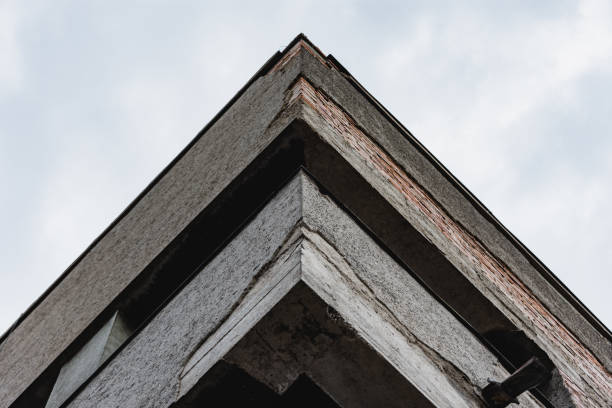
The type of construction materials used and the condition of the major systems, such as electrical, plumbing, and heating/cooling systems, can impact the final value of your home.
When conducting an appraisal, the appraiser will evaluate the quality of the construction materials used in your home, including the flooring, roofing, insulation, and siding. Modern materials are typically more durable and efficient than outdated ones, which can increase the value of your home. The appraiser will also consider the age and condition of these materials and any recent upgrades or renovations.
The quality of materials used in your home and the condition of the major systems can positively or negatively affect your home’s appraisal value. Upgrades and modern materials can potentially increase the value of your home, while outdated systems and poor materials may result in a lower appraisal value.
Your HVAC Impacts House Value
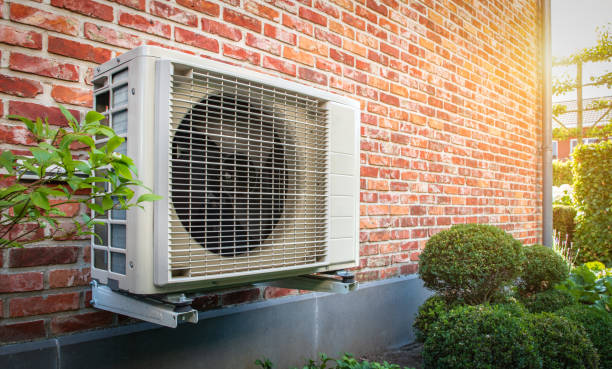
The HVAC system is a crucial part of your home’s major systems, and it is responsible for heating and cooling your home, which is essential for creating a comfortable living space.
A well-maintained and modern HVAC system can increase the value of your home appraisal, potentially resulting in a higher sale price. Conversely, an outdated or poorly functioning HVAC system can negatively affect your home’s value, potentially resulting in a lower sale price.
If your HVAC system is outdated or in poor condition, it may be worth investing in a replacement or repair before putting your home on the market. Not only can this increase the value of your home appraisal, but it can also make your home more appealing to potential buyers.
Ensuring your HVAC system is modern, well-maintained, and functioning properly can increase your home’s value and appeal to potential buyers.
Fewer beds and baths

The number of bedrooms and bathrooms is another important factor affecting your home’s value during the appraisal process. Generally, more beds and baths translate to higher home values. However, this also depends on the size of the house, local market trends, and buyer preferences.
Homes with fewer beds and baths may be considered less desirable and may receive lower appraisals. For example, a three-bedroom, two-bathroom home in a neighborhood where most homes have four bedrooms and three bathrooms may have a lower appraised value than other properties in the area.
On the other hand, a two-bedroom, one-bathroom home in a neighborhood where smaller homes are in demand may receive a higher appraisal value than a similar home in a different neighborhood.
A home with outdated or poorly maintained bathrooms and bedrooms may negatively affect its value during an appraisal. Upgrading or renovating these areas can potentially increase the value of your home.
Overall, the number of bedrooms and bathrooms is just one of many factors that can affect your home’s appraisal value. The appraiser will consider various other aspects of the property, such as square footage, location, and condition of major systems, to determine a fair market value.
Lack of amenities

The lack of amenities can negatively affect the appraisal value, making it difficult to sell the property for more money. The presence of amenities such as swimming pools, hot tubs, fireplaces, and high-end appliances can significantly increase a home’s value.
Location factors also affect the amenities that are expected in a home. For instance, a suburban neighborhood will likely have more amenities than a rural area. Neighborhood amenities such as parks, recreational facilities, and shopping centers can increase the value of a property.
The lack of amenities in a home can negatively affect its appraisal value. Homeowners can increase the value of their homes by investing in upgrades, modern systems, and adding amenities that are expected in their local real estate market.
Neighborhood

The neighborhood in which your home is located is a crucial factor that affects the value of your home. A home’s appraisal value is highly influenced by its location and the amenities available in the neighborhood. The local real estate market and current market conditions are also important factors to consider.
A home appraiser will typically perform a comparative market analysis to determine the fair market value of a property. This involves looking at comparable homes in the same area that recently sold and comparing their features and selling prices to the appraised home. The number of bedrooms and bathrooms, square footage, and storage space are all factors that can affect a home’s value.
In summary, a home’s location and the amenities available in the surrounding neighborhood are important factors to consider when determining the value of a property. It is important to work with a real estate agent or appraiser who is familiar with the local market and can accurately assess the value of your home.
The Local Real Estate Market

The local real estate market is a crucial factor that can impact the value of your home. The market conditions in your area can affect the demand for homes, and the amount buyers are willing to pay. When you appraise your home, the appraiser will consider the current local real estate market.
If the local real estate market is strong with many buyers and low inventory, your home may appraise for a higher value. On the other hand, if the local real estate market is slow with few buyers and high inventory, your home may appraise for a lower value.
Overall, understanding the impact of market conditions and location factors can help you better understand how the appraisal process works and how to maximize the value of your home.
How Long Does a Home Appraisal Take?

The time it takes for a home appraisal can vary depending on several factors. Generally, a standard appraisal can take anywhere from a few days to a week to complete, but more complex appraisals may take longer.
Some factors that can affect the appraisal process and time include the size and complexity of the home, the availability of comparable sales data, the type of appraisal report being used, and the appraiser’s workload.
Once the appraiser has completed the visit and research, they will create an appraisal report that includes the home’s final value. This report typically takes a few days to complete after the appraiser’s visit.
Overall, the appraisal process can take anywhere from a few days to a few weeks, depending on various factors. It is important to plan for this timeframe when buying or selling a home to ensure that the appraisal process does not cause any delays in the real estate transaction.
Bottom line
Working with a professional appraiser with experience in your local market is important to ensure that your home is valued correctly. By taking the time to understand these factors and working with a knowledgeable appraiser, you can ensure that your home is valued accurately and that you get the best possible price when it comes time to sell.
